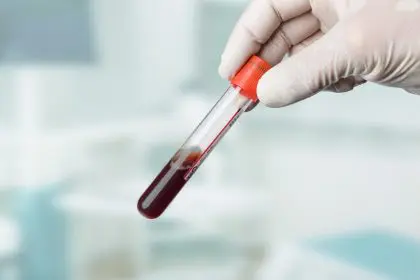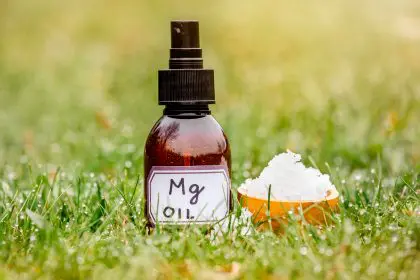If you’ve been anywhere near wellness TikTok lately, you’ve probably heard people raving about something called NAD+. This tiny molecule is creating major waves in the scientific community, and for good reason. Found in every single cell of your body, NAD+ might just be the key to unlocking the fountain of youth we’ve all been searching for.
The cellular decline nobody warns you about
Your body’s NAD+ levels are probably dropping right now, research shows this crucial molecule starts declining as we age, with some studies finding up to a 50-percent drop in skin cells and a 25-percent decrease in brain tissue. Think of it like your phone battery slowly losing its capacity, except this battery powers every cell in your body.
NAD+ isn’t just another trendy supplement, it’s literally keeping your cells alive right now. This powerhouse molecule plays a crucial role in energy production, DNA repair, and maintaining your body’s internal clock. Without it, your cells would struggle to function properly, leading to visible signs of aging and potential health issues.
The supplement situation you need to understand
With all the buzz around it, supplement companies are racing to get products on the market, but here’s where things get tricky. According to scientists, simply popping an NAD+ pill isn’t going to cut it. The molecule is too large to be absorbed through your digestive system, which means many supplements might be a waste of money.
Instead of taking pills directly, scientists are focusing on something called precursors, specifically nicotinamide mononucleotide (NMN) and nicotinamide riboside (NR). These compounds can be converted into NAD+ by your body, potentially offering a more effective way to boost your levels. Some studies show these precursors might increase NAD+ levels by up to 40 percent.
The IV trend taking over wellness clinics
If you’re seeing people getting NAD+ through IV drips on social media, you’re not alone. This treatment has become increasingly popular, promising quick results. However, it’s not all sunshine and rainbows. Users report experiencing nausea and chest tightness during treatments, making it a less-than-comfortable experience for many.
Your regular skincare routine might already be supporting your NAD+ levels without you realizing it. Ingredients like niacinamide, resveratrol, and vitamin C could help maintain healthy NAD+ levels in your skin cells. This means you might not need to completely overhaul your routine to reap some benefits.
The truth about regenerative aging
Regenerative aging is revolutionizing how we think about getting older. Instead of just treating wrinkles and gray hair, this approach focuses on optimizing your body’s natural repair processes. NAD+ plays a crucial role in this new paradigm, potentially helping your cells maintain their youthful function longer.
While the potential is exciting, scientists remain cautiously optimistic. More research is needed to fully understand how supplementation affects human health long-term. Doctors emphasizes that while NAD+ shows promise, it’s just one piece of the longevity puzzle.
Making smart choices for your health
Before jumping on the bandwagon, consider starting with proven anti-aging strategies. Use sunscreen daily, incorporate retinol into your skincare routine, and maintain healthy lifestyle habits. If you’re interested in NAD+ supplementation, talk to a healthcare provider who can help you make an informed decision based on your individual needs.
Remember, while NAD+ might not be the miracle cure some claim it to be, the science behind it is fascinating and promising. As research continues, we’ll better understand how to harness its potential for healthy aging. In the meantime, focus on evidence-based practices that support your body’s natural ability to stay healthy and vibrant.















